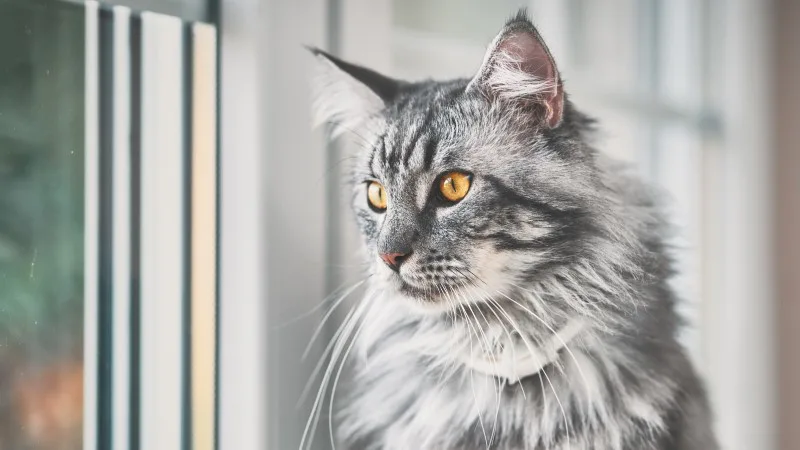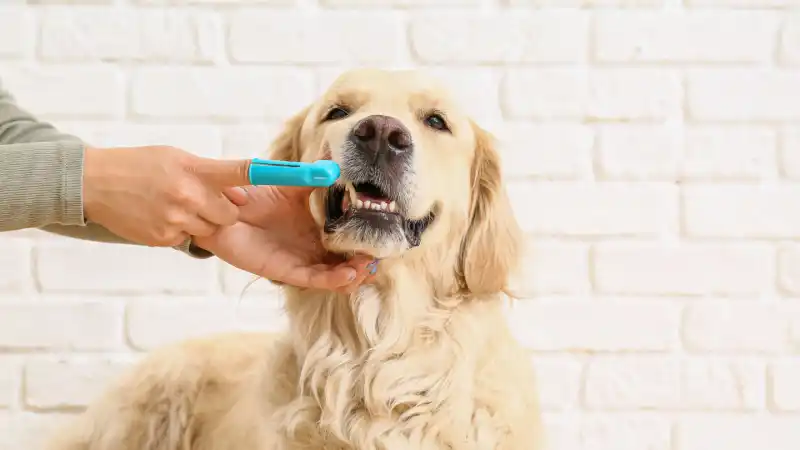Feline Heart Disease: A Silent Killer for Cats
Cat owners should be aware of the prevalence of cat heart disease. Learn the symptoms of feline cardiac disease, causes, detection, and prevention.

Cardiac (heart) disease is a common problem in the human population, so most of us are familiar with the risks that can contribute to this group of life-threatening conditions. Many pet owners are also aware that heart disease, including congestive heart failure, can be a problem for dogs, especially older ones.
On the other hand, most cat owners have no idea that cardiac disease could be an issue for their feline friends. And, it’s not their fault. Less is known about feline heart disease and it’s harder to detect. Therefore, there is not as much information or educational material available for cat owners, leading to less awareness. We’re hoping this article will help change that by providing an introduction to heart problems in cats and steps that can be taken to detect and prevent it.
What Causes Cat Heart Disease?
The most common cause of cardiac disease in cats is Hypertrophic Cardiomyopathy (HCM). This disease causes a thickening of the walls of the heart to the point where they cannot function or contract normally. The exact cause is unknown.
There is an inheritable or genetic factor leading to HCM in some breeds, such as the Maine Coon and Ragdoll, but the most commonly affected breed is your everyday domestic short hair cat. In most cases, we don’t know why these cats develop HCM, making it hard to prevent. Early detection is also tricky as many cats do not show signs until they are experiencing full blown congestive heart failure (CHF) or another emergency situation, such as an aortic thromboembolism (painful and life-threatening blood clot). Some cats with other metabolic diseases like hyperthyroidism will develop HCM as a secondary problem.
A second type of cardiac disease, dilated cardiomyopathy (DCM), has almost been eradicated from the companion cat population. DCM occurs in cats who do not receive enough taurine in their diet, which causes their heart muscle to stretch and become flabby. Cats who are eating a commercial diet that is balanced and formulated for felines are almost 100% guaranteed not to develop this condition.
What Happens to Cats with Cardiac Disease?
If left untreated, HCM and DCM will eventually result in congestive heart failure (CHF). DCM is largely reversible as long as it is caught early, and the cat begins receiving an appropriate feline diet. Unfortunately, the heart muscle changes in HCM are almost completely irreversible. In cases where metabolic disease like hyperthyroidism is a contributing factor, there is a chance that some of the changes will be reversed once the disease is managed effectively with the help of a veterinarian. However, in the cases of HCM that develop from an unknown cause, the best chance a cat has to maintain longevity and quality of life is early detection followed by veterinary guided medical management.
How Can Cardiac Disease Be Detected and Prevented?
Preventing DCM is easy, just make sure your cat is fed a nutritious food that is labeled as “complete and balanced” according to AAFCO standards. If you choose to feed your cat a home-cooked diet, you should consult with a veterinary nutritionist.
When it comes to HCM, since the cause is typically unknown, it is not preventable. Therefore, the priority shifts to early detection. The earlier cardiomyopathy is detected, the better the chance of having treatment options and providing your cat with the happiest, longest life possible. Because most cats do not show symptoms until the disease is very advanced, the best way to detect is to make sure your cat sees their primary veterinarian for a full examination at least once per year. If they are senior (over 7 – 10 years of age), seeing the vet twice per year is more ideal.
During an exam, your veterinarian will auscultate (listen to) your cat’s heart. In a recent, groundbreaking study, it was found that 82% of cats with DCM had detectable heart murmurs. If a heart murmur is detected, further diagnostics, such as radiographs (x-rays) and/or an echocardiogram, will be recommended to determine what is causing the murmur and if HCM is the problem.
Another helpful test looks for evidence that your cat’s heart muscle is under stress by measuring the concentration of a specific protein (NT – proBNP). The advantage of this test is that it only requires a blood sample. The results can help your veterinarian decide the next best step for your cat. Testing may also be included in regular health screening profiles and is recommended by many veterinarians for senior cats and cats who need an anesthetic procedure, like a dental cleaning.
You may be worried that all of this treatment and testing will be expensive or out of your budget, and you are not alone. Preventing an emergency situation like heart failure or a painful blood clot is one of the best ways to save money on pet care, which is another reason why regular veterinary exams are so important.
Pet insurance can provide financial support when it comes to routine veterinary care and health screenings. AKC Pet Insurance (underwritten by Independence American Insurance Company) offers an Exam add-on that provides reimbursement for exam fees and office visit charges, which can make regular vet appointments more affordable and help you keep up on routine pet care.

Every Dog and Cat Deserves the Pet Insurance of Champions
Get prize-winning care for your pets.
Nell Ostermeier is an Integrative Veterinarian, Motivator, Lecturer, and Consultant.
READ MORE ARTICLES

